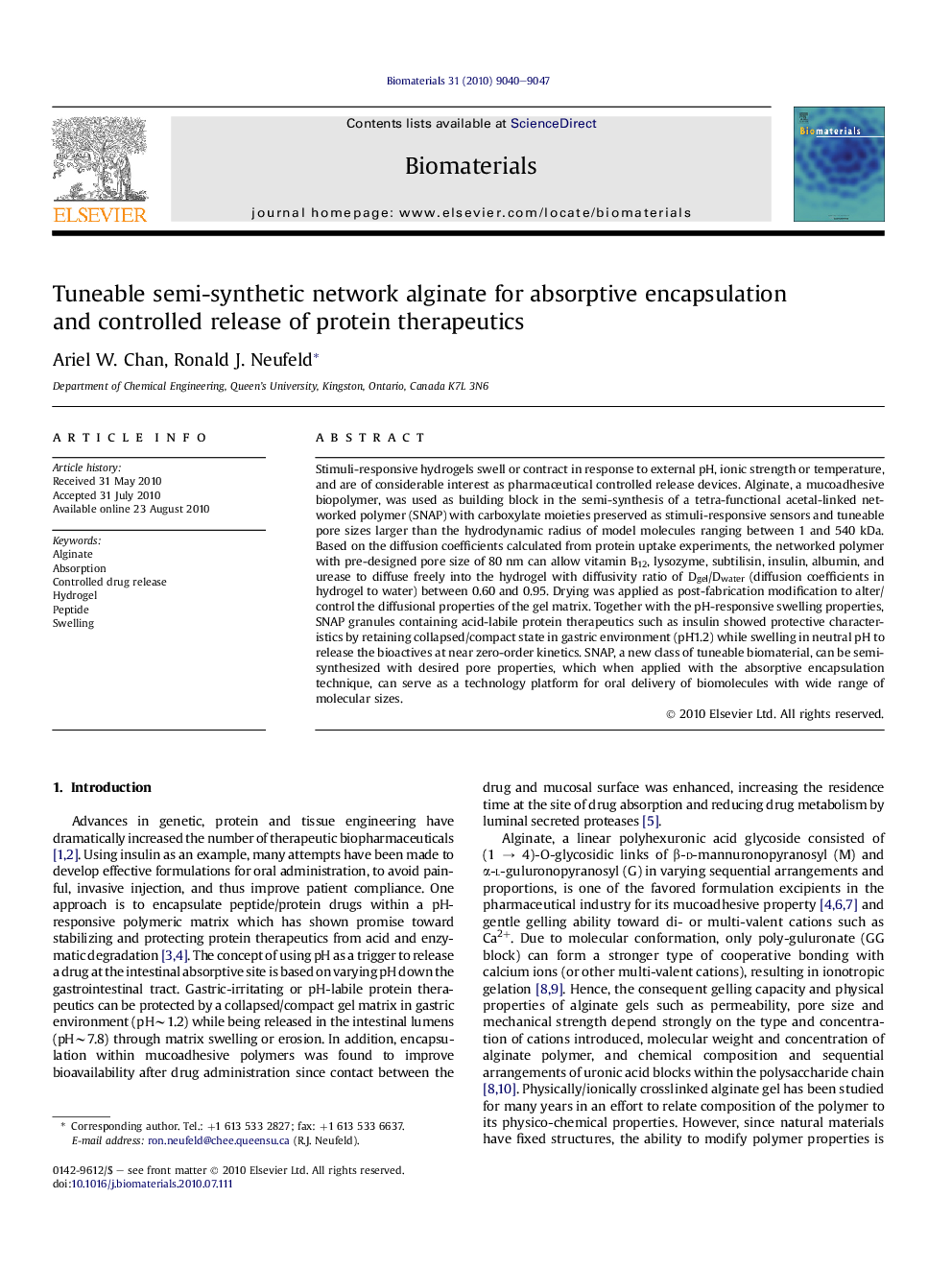| Article ID | Journal | Published Year | Pages | File Type |
|---|---|---|---|---|
| 8751 | Biomaterials | 2010 | 8 Pages |
Stimuli-responsive hydrogels swell or contract in response to external pH, ionic strength or temperature, and are of considerable interest as pharmaceutical controlled release devices. Alginate, a mucoadhesive biopolymer, was used as building block in the semi-synthesis of a tetra-functional acetal-linked networked polymer (SNAP) with carboxylate moieties preserved as stimuli-responsive sensors and tuneable pore sizes larger than the hydrodynamic radius of model molecules ranging between 1 and 540 kDa. Based on the diffusion coefficients calculated from protein uptake experiments, the networked polymer with pre-designed pore size of 80 nm can allow vitamin B12, lysozyme, subtilisin, insulin, albumin, and urease to diffuse freely into the hydrogel with diffusivity ratio of Dgel/Dwater (diffusion coefficients in hydrogel to water) between 0.60 and 0.95. Drying was applied as post-fabrication modification to alter/control the diffusional properties of the gel matrix. Together with the pH-responsive swelling properties, SNAP granules containing acid-labile protein therapeutics such as insulin showed protective characteristics by retaining collapsed/compact state in gastric environment (pH˜1.2) while swelling in neutral pH to release the bioactives at near zero-order kinetics. SNAP, a new class of tuneable biomaterial, can be semi-synthesized with desired pore properties, which when applied with the absorptive encapsulation technique, can serve as a technology platform for oral delivery of biomolecules with wide range of molecular sizes.
